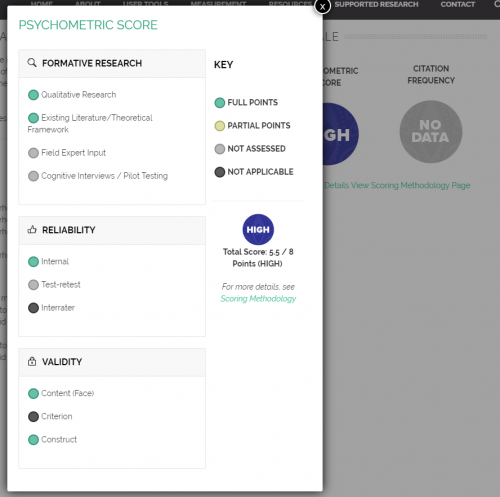Improving Quantitative Measurement of Gender Equality and Empowerment – EMERGE Website Now Live
Despite growing interest in improving gender equality globally, there exist only a limited number of tools to effectively assess and/or evaluate gender-responsive programming and policy change. In a report by UN Women, it was estimated that there is a lack of measures for 80% of indicators used to assess Sustainable Development Goal (SDG) 5 Gender Equality and Empowering All Women and Girls. Another report indicates that there is adequate gender data for only 1 of 54 gender-specific indicators across UN SDG’s.
Therefore, to accurately monitor the gender equality and empowerment, compare progress at an international level, and reduce discriminatory practices directed at women and girls — robust gender data and measurement tools are needed.
Our project, EMERGE, seeks to address these noted gaps in measurement of gender equality and empowerment (GE/E). The goal of EMERGE [Evidence-based Measures of Empowerment for Research on Gender Equality] is to advance the field of gender equality and empowerment research in India and other multi-country settings on multiple fronts by:
- Reviewing current available GE/E measures and identifying existing gaps – both in content (e.g. the absence of measures addressing legal issues regarding the state and rights of women/girls) and quality (i.e. measure reliability and validity) to advance the field.
- Providing a website-based resource for scientists and survey agencies to access available measures (scored by the EMERGE team) and learn about existing rigorous and validated measurement tools.
- Supporting the development and psychometric assessment of innovative GE/E measures. This includes the provisions of grants (up to 50,000 USD) to fund India-based researchers invested in measure development or adaptation efforts, especially those that address gap areas (for more information visit http://emerge.ucsd.edu.rfp/).
The result of our initial review of available GE/E measures are on the EMERGE website, which launched May 1, 2018, and can be accessed at emerge.ucsd.edu. This website includes over 100 GE/E measures across 9 dimensions: Social, Psychological, Economic, Legal, Political, Health, Household and Intrafamilial Relations, Environment and Sustainability, and Time Poverty. Measures are organized by dimension and domain, or topical area, (i.e. Dimension: Health, Domain: Gender Based Violence) so site visitors can easily access measures of topical interest. A step-by-step guide to searching for measures can be found on the How to Find a Measure page.
Each measure page includes:
- Brief description of the measure
- Sampled population profile details including age, gender, and country information (based on publication cited)
- Measure item(s)
- Measure scoring procedure
- Measure psychometric score based on evidence of formative research, reliability, and validity testing
- Publication citing frequency; derived using Google Scholar’s “Cited By” tool
- Publication reference or primary citation
Quantitative GE/E measure were included on the site if they came from either (A) a national of multi-country survey/report of (B) a peer-reviewed publication (journal with impact factor >1) where psychometric testing or validation was primary research objective. Not all measures were able to be scored. Still most measures on the EMERGE website are scored for following components:
- Formative Research
- Qualitative research (e.g., in-depth interviews, focus groups)
- Existing literature or theoretical framework
- Field expert input
- Cognitive interviewing/Pilot testing
- Reliability Testing
- Internal reliability
- Test-retest reliability
- Interrater reliability
- Validity Testing
- Content validity
- Face validity
- Criterion validity
- Construct validity
Assessment of the above, components are necessary to determine whether a measure captures what it is intended to capture (valid), is consistent across time, people, and circumstances (reliable), and is easy and accessible to use. All GE/E measures should meet these standards to ensure data collected are trustworthy and unbiased, for a detailed description on the scoring process please see the Scoring Methodology page.
Additional information on measure development and psychometric evaluation can be found in the EMERGE Measurement Guidelines Reports located on the Resource Page.
As the field of measurement science in GE/E research is constantly changing, we encourage anyone interested to submit new measures for review using our site. New measure submissions, along with changes to an existing measure and general questions/comments, are welcome on the Contact page.
For India-based researchers who would like to submit a grant proposal for a new and innovative GE/E measure, please see our Request for Proposals page. The deadline for the 2018 EMERGE grants is June 15, 2018. To view currently funded research visit the Supported Research page.
It is our hope that the EMERGE Website will strengthen the prioritization of GE/E measures development and establish psychometric testing as the field norm. The collection of GE/E data geared at gender-responsive programming and policy change is essential to achieving our shared goal to live in a world where the contributions, assets, and capabilities of women and girls are deemed to equal to that of men and boys.
Authored by: Cassidy Koo, Amruta Trivedi, Jonathan Linco, Rupa Jose, PhD
References:
- UN Women. Take five with Papa Seck: Getting better at gender data- why does it matter? September 2016. Access at http://www.unwomen.org/en/news/stories/2016/9/feature-story-take-five-with-papa-seck-on-gender-data#sh.ylr20S5N.dpuf
- UN Women (2018). Turning promises into action: gender equality in the 2030 agenda for sustainable development (Research report).




